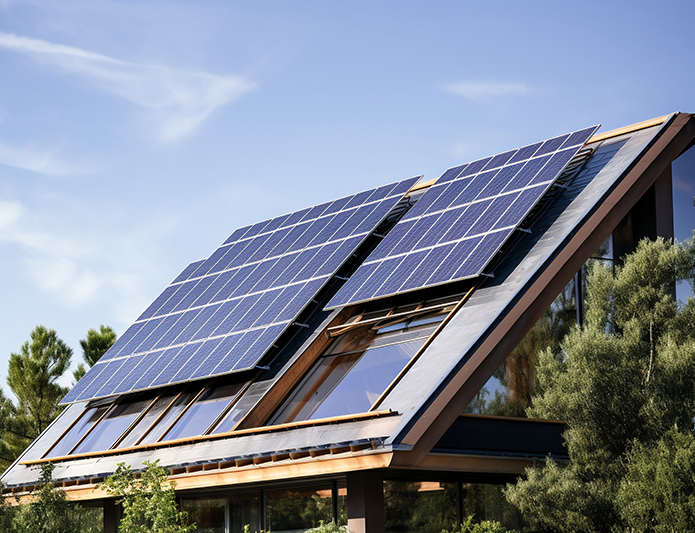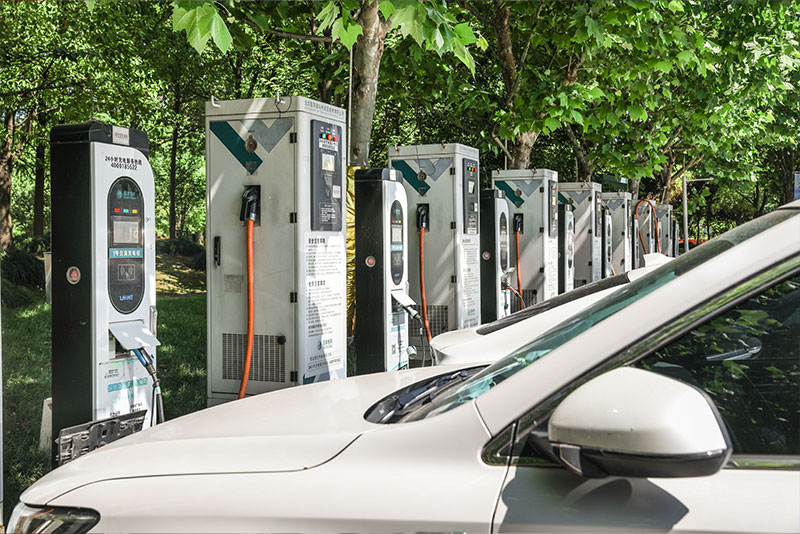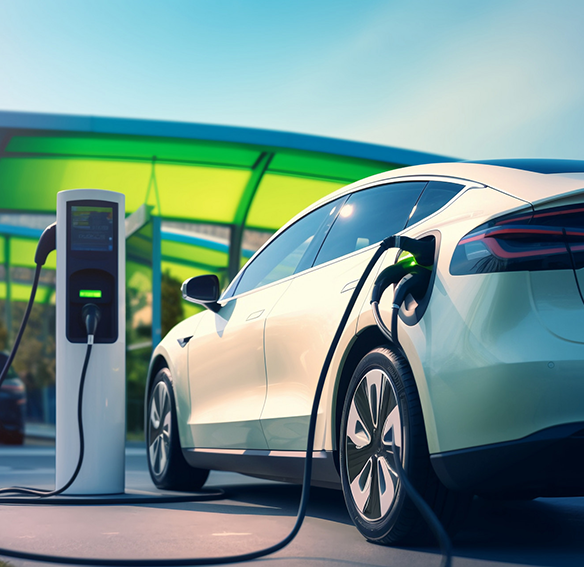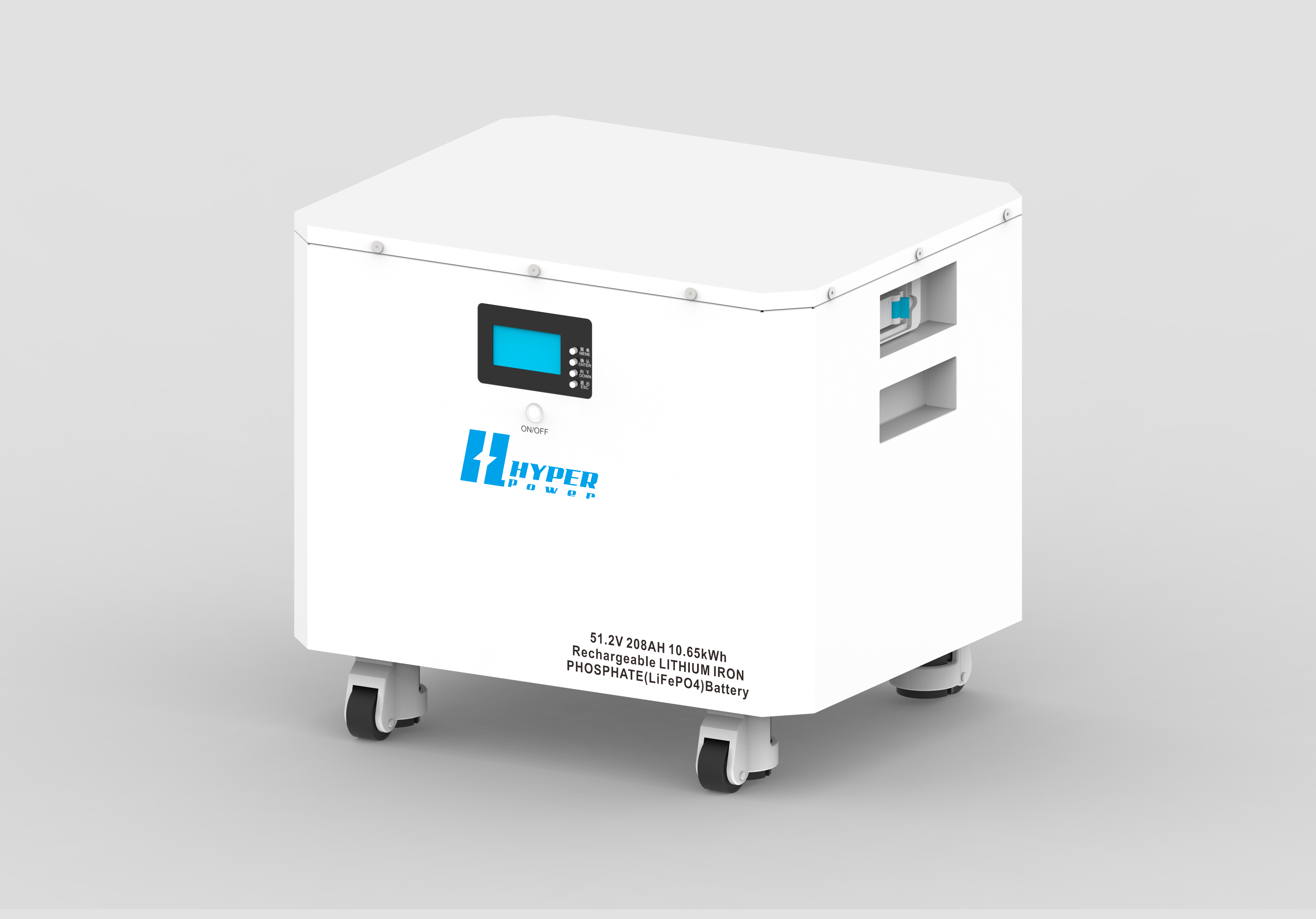Why Large Solar Battery Storage Systems Are Essential for Sustainable Power
In the quest for sustainable energy solutions, solar power has emerged as one of the most promising and widely adopted technologies worldwide. However, as the use of solar panels becomes increasingly prevalent, the importance of integrating effective energy storage solutions has never been clearer. One such solution—large solar battery storage systems—has become a vital component in enabling solar energy to reach its full potential. These systems help maximize the efficiency of solar energy, ensuring reliable power availability, and providing flexibility for both residential and commercial users.
In this blog, we will explore the crucial role of large solar battery storage systems in the transition to sustainable energy. We will examine their function, benefits, and why they are an essential element in modern energy infrastructure. From reducing reliance on the grid to enhancing energy independence, large solar battery storage systems are set to revolutionize the way we think about and use solar power.
What Are Large Solar Battery Storage Systems?
Before diving into the benefits, it’s important to understand what large solar battery storage systems are and how they work. Essentially, large solar battery storage refers to a system that stores excess energy produced by solar panels during the day for later use, typically at night or during cloudy periods when solar power generation is limited. These systems are typically made up of solar batteries, an inverter, and a battery management system (BMS) that oversees the operation and health of the battery.
A solar battery is a key component of the system, where energy from the solar panels is stored. These batteries are typically lithium-ion or other advanced battery types due to their high energy density, longevity, and efficiency. The inverter converts the DC electricity generated by the solar panels into AC electricity, which can be used to power homes and businesses. The battery management system (BMS) ensures the batteries are functioning optimally, preventing overcharging, deep discharging, and other potential issues that could compromise battery life and performance.
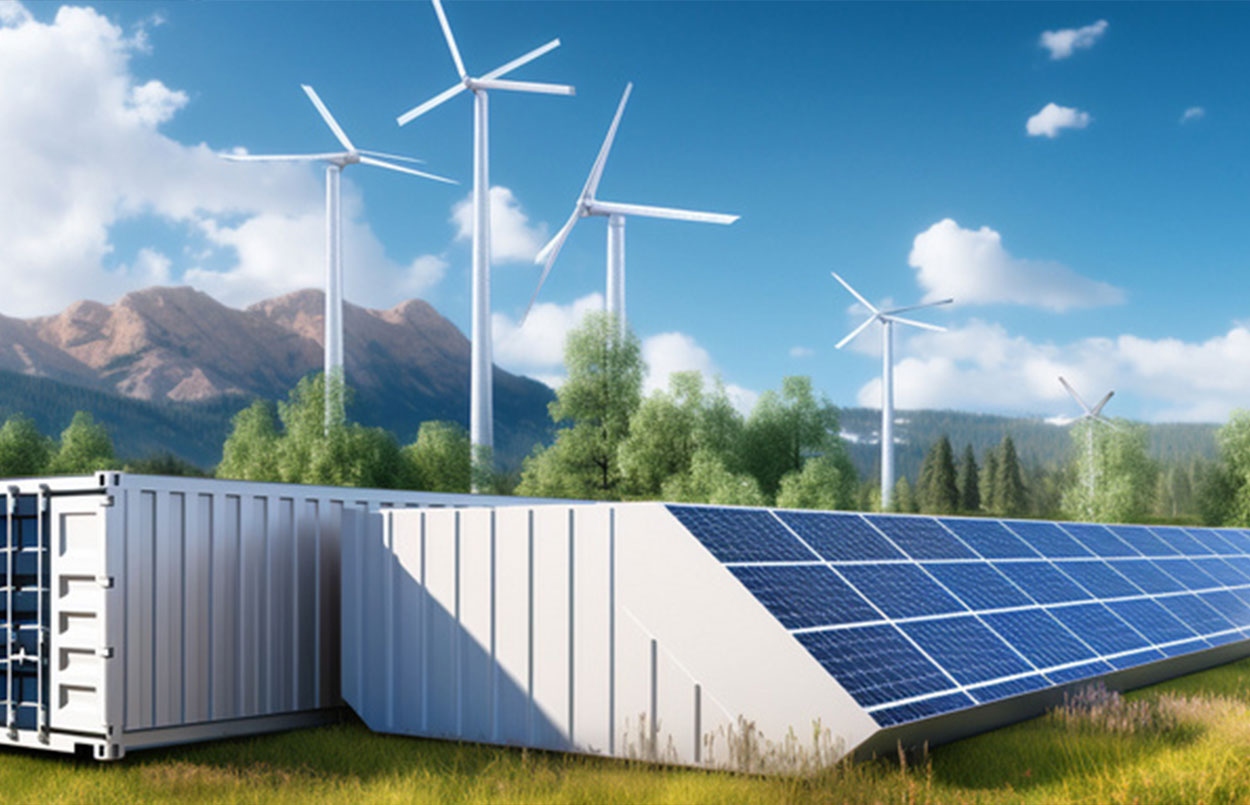
The Rising Need for Energy Storage
As the world transitions to renewable energy sources, solar power continues to be a frontrunner. The growing popularity of solar energy, however, has uncovered a fundamental challenge: solar power is intermittent. Solar energy can only be generated when the sun is shining, and this variability makes it difficult to rely solely on solar energy to meet all of our power needs. This is where large solar battery storage systems come into play.
By storing excess solar energy during peak sunlight hours, large solar battery storage systems enable users to tap into stored power when the sun is not shining, such as at night or during overcast conditions. This helps smooth out the fluctuations in solar power generation and ensures a continuous and stable supply of electricity, reducing the need for traditional grid power, which is often produced from fossil fuels.
Benefits of Large Solar Battery Storage Systems
1. Energy Independence
One of the most significant advantages of large solar battery storage systems is the ability to achieve energy independence. For both residential and commercial users, relying solely on the grid means being subject to the whims of utility prices, grid reliability, and potential power outages. With large solar battery storage systems, users can store excess energy generated by their solar panels and use it when they need it most, thus reducing or even eliminating their reliance on the grid.
In areas where electricity prices are high or the power grid is unstable, large solar battery storage systems offer a level of self-sufficiency that can lead to substantial long-term savings. Moreover, in the event of grid failures or power outages, solar battery storage provides a reliable backup power source, allowing homes and businesses to remain operational even during blackouts.
2. Maximizing Solar Power Efficiency
The efficiency of solar energy production depends on sunlight availability, which varies throughout the day and the year. Without storage, any excess energy generated by solar panels during the day would go unused, potentially leading to wasted potential. Large solar battery storage systems help address this issue by capturing excess energy during the day and storing it for use during periods of low sunlight.
This maximization of solar power usage means that the energy generated by your solar panels is utilized to its fullest potential, helping homeowners and businesses get the most out of their investment in solar technology. By storing energy for use during non-peak hours, users can reduce their dependence on the grid and minimize energy costs.
3. Grid Stability and Load Balancing
On a larger scale, large solar battery storage systems can play a crucial role in stabilizing the electrical grid. As more solar power is added to the grid, grid operators face the challenge of balancing supply and demand, particularly since solar power is subject to variability. Large-scale solar battery storage systems can help mitigate this issue by storing energy during periods of excess generation and discharging it when there is a higher demand for power.
In regions with high solar penetration, this capability is especially important. Large solar battery storage systems can function as virtual power plants, helping to stabilize the grid by reducing the need for fossil fuel-based peaking power plants, which are typically used during periods of high demand. This not only enhances grid reliability but also contributes to reducing the environmental impact of power generation.
4. Cost Savings and ROI
While large solar battery storage systems require an initial investment, they can deliver significant savings over time. By storing energy during the day, users can reduce their dependence on the grid, leading to lower energy bills, particularly during peak demand times when electricity prices are highest. Many regions have time-of-use (TOU) pricing, which charges higher rates for electricity during periods of high demand and lower rates during off-peak hours. By using stored energy during peak periods, large solar battery storage systems help avoid these higher rates and maximize cost savings.
Moreover, with government incentives and rebates available in many regions, the upfront costs of installing large solar battery storage systems are becoming more affordable. Over time, the energy savings, combined with the potential to sell excess energy back to the grid (in areas with net metering), can make these systems a profitable investment.
5. Environmental Impact Reduction
Solar power is one of the cleanest energy sources available, and by combining solar energy with large battery storage, we can further reduce our carbon footprint. Storing solar energy for later use reduces the need for backup power from fossil fuel-based plants, which emit greenhouse gases and contribute to climate change. By integrating solar battery storage into solar energy systems, homeowners and businesses are not only reducing their energy costs but also supporting the global transition to cleaner, more sustainable power sources.
Applications of Large Solar Battery Storage Systems
For homeowners, large solar battery storage systems are an excellent way to enhance the value and performance of their solar panels. With a growing number of people looking to reduce their carbon footprints and energy bills, integrating solar energy with battery storage is becoming an increasingly popular option. Whether it’s for off-grid living, backup power, or maximizing energy efficiency, large solar battery storage systems offer a level of flexibility and reliability that traditional power sources simply cannot match.
Commercial and Industrial Use
For businesses, large solar battery storage systems can help manage energy costs, reduce reliance on the grid, and even provide a competitive edge. Companies with significant energy needs, such as factories, warehouses, and large offices, can benefit from integrating solar energy with battery storage to manage their energy usage more efficiently. By doing so, they can lower operational costs, protect against electricity price fluctuations, and meet corporate sustainability goals.
Additionally, solar battery storage is particularly advantageous for businesses in regions with frequent power outages, as it provides a reliable backup power source that can keep operations running smoothly during grid disruptions.
Utility-Scale Projects
On a larger scale, large solar battery storage systems are essential for utility companies aiming to integrate renewable energy into the grid. These systems can store energy generated by solar farms during the day and release it when demand peaks or when solar generation is low. By doing so, they reduce the need for traditional fossil fuel-based power plants, making the entire grid more sustainable.
Utility-scale battery storage is also crucial for balancing energy supply and demand in real-time, ensuring that power generated from renewable sources is used efficiently. This is particularly important as more countries move toward a renewable energy future and away from fossil fuels.
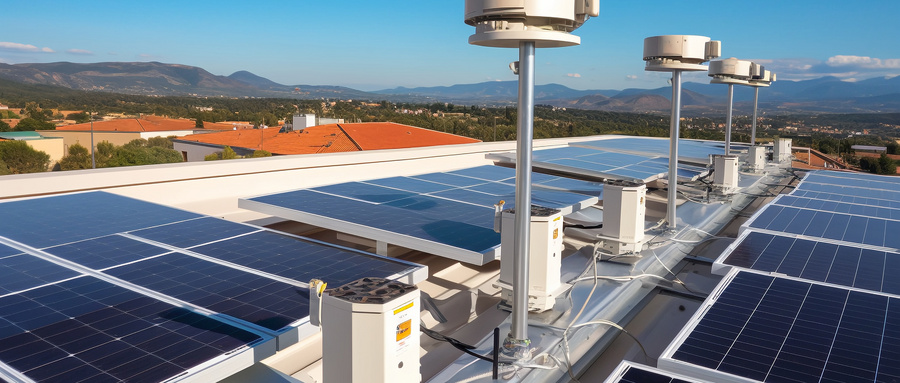
Challenges and Future of Large Solar Battery Storage Systems
Despite their many benefits, large solar battery storage systems do face some challenges. The upfront cost of these systems can be prohibitive for many homeowners and businesses, although prices are steadily decreasing as the technology improves. Additionally, the efficiency and longevity of batteries are still being optimized, and issues related to battery disposal and recycling need to be addressed for long-term sustainability.
Nevertheless, the future of large solar battery storage systems is incredibly promising. As advancements in battery technology continue, we can expect even more affordable, efficient, and durable systems to become available. Moreover, with the increasing global push toward renewable energy, governments, businesses, and homeowners are more motivated than ever to invest in solar battery storage as a means of securing a sustainable energy future.
Conclusion
Large solar battery storage systems are undeniably essential for the continued growth and success of solar power. By storing excess solar energy for later use, these systems enhance the efficiency of solar installations, reduce reliance on the grid, and provide a reliable backup power source. Whether it’s for homes, businesses, or utilities, the integration of solar battery storage with solar power helps create a more sustainable, resilient, and cost-effective energy infrastructure. As the world continues to embrace renewable energy, large solar battery storage systems will play an even greater role in shaping a cleaner and more sustainable future for all.
By investing in large solar battery storage, we can take full advantage of the power of the sun and move closer to a truly sustainable energy future—one where power is clean, reliable, and accessible for everyone.
Blog

A Comprehensive Guide to Solar Battery Energy Storage Systems

The Ultimate Guide to Lithium-Ion Battery Banks for Home Energy Storage

Unlocking the Potential of Commercial Solar Battery Storage Systems
-Charging.png)


.jpg)







